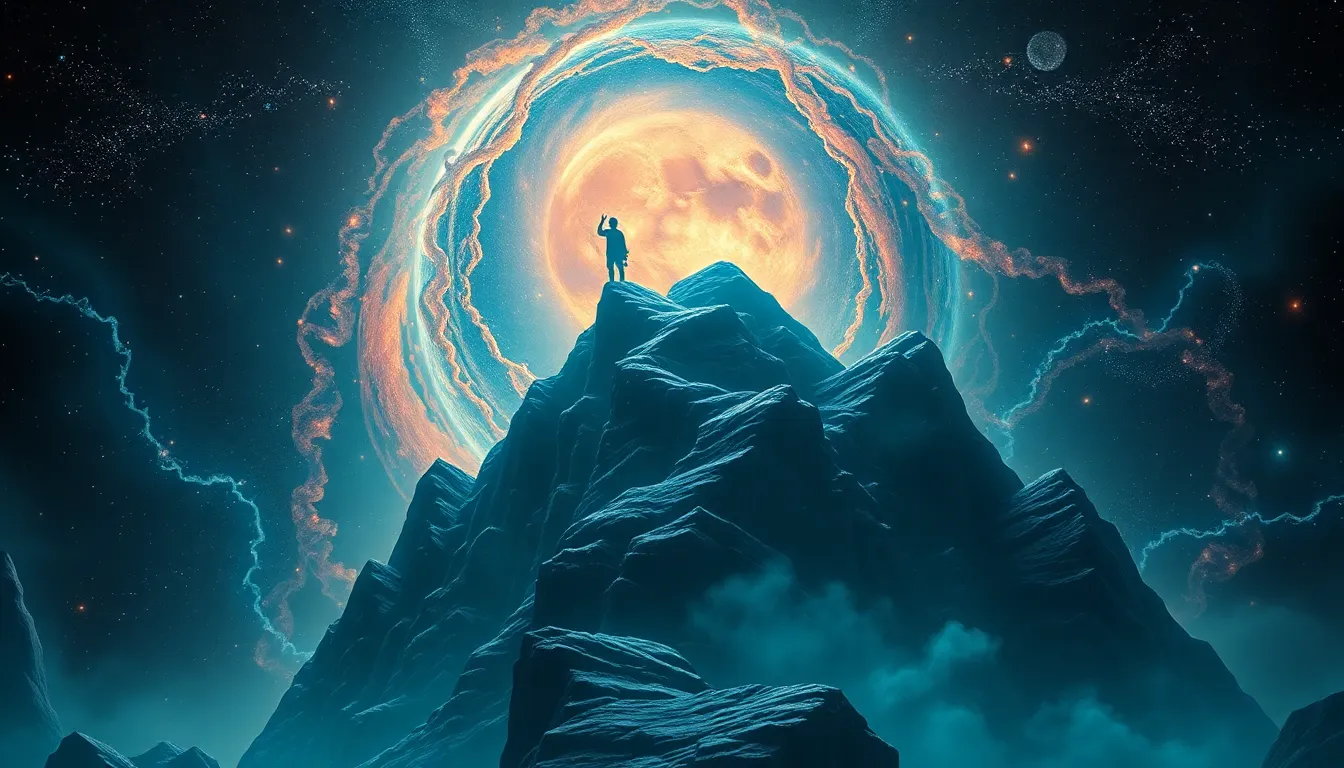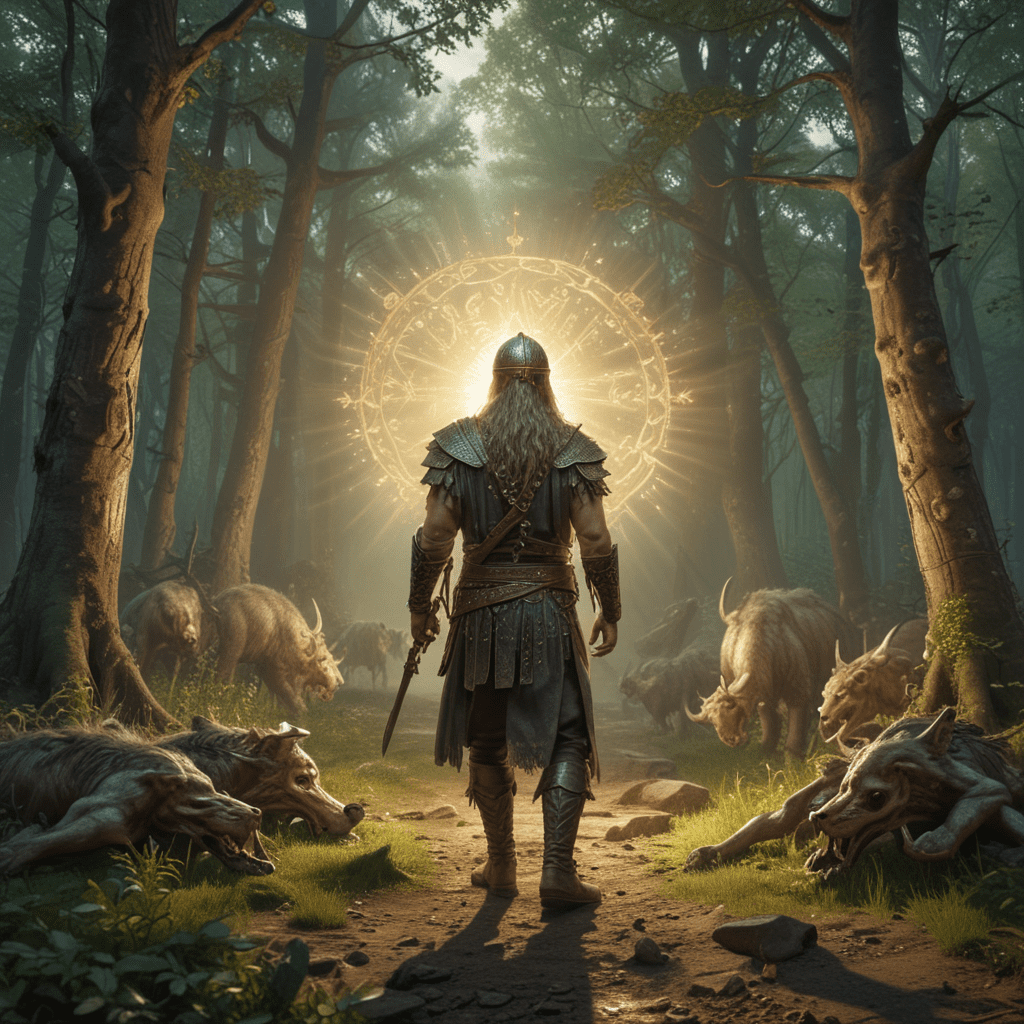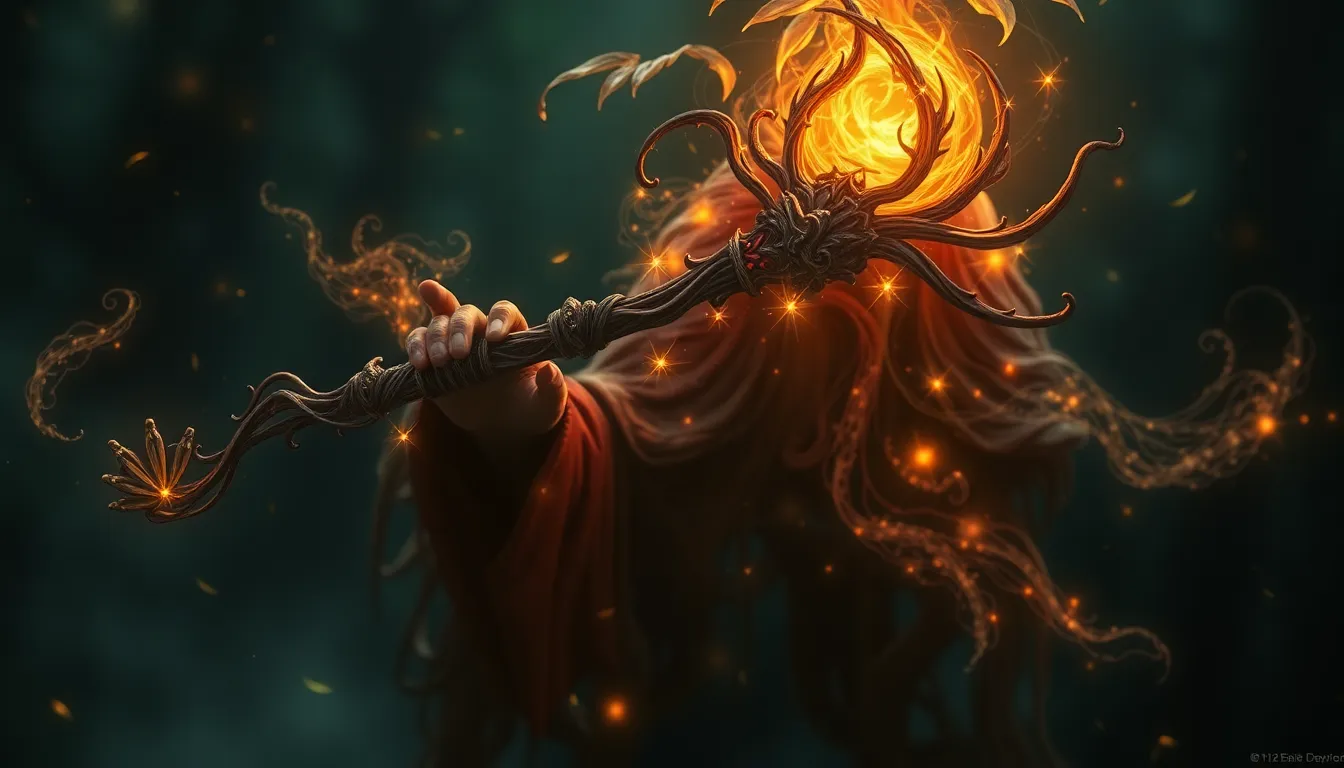The Cosmic Odyssey: Exploring the Origins of Creation Myths
I. Introduction to Creation Myths
Creation myths are foundational narratives that explain how the universe and life within it came into being. These stories are significant not only for their cultural value but also for the insights they provide into the values, beliefs, and worldviews of the societies that tell them. Creation myths often feature universal themes such as chaos and order, the role of deities, and the relationship between humanity and nature.
Studying creation myths is crucial for understanding different cultures. They reflect the historical experiences of communities and reveal their understanding of existence, morality, and the natural world. By exploring these myths, we can gain deeper insights into the human experience and the diverse ways in which people have sought to explain their origins.
II. Historical Context of Creation Myths
The evolution of creation myths can be traced through various civilizations, each contributing unique perspectives shaped by their environments and experiences. From the ancient Sumerians to the indigenous tribes of the Americas, these myths have undergone transformations that reflect the changing beliefs and values of societies over time.
Archaeological findings play a vital role in illuminating the historical context of creation myths. Artifacts such as ancient texts, pottery, and cave paintings provide evidence of how these stories were shared and adapted. For example, the Epic of Gilgamesh offers insights into Mesopotamian beliefs about creation and the divine.
Oral tradition has also been instrumental in preserving creation stories. Before the advent of written language, myths were passed down through generations via storytelling, allowing cultures to maintain their narratives and adapt them over time. This oral tradition ensured that even as societies evolved, their foundational stories remained relevant.
III. Major Themes in Creation Myths
Creation myths often revolve around several major themes:
- Chaos and order: Many myths begin with a state of chaos or nothingness, transitioning into a structured universe. This theme reflects humanity’s desire to understand the origins of order in the cosmos.
- The role of deities: Supernatural beings often play a central role in creation myths. These deities may create the world through their will or struggle against chaos to bring forth order.
- The interplay between nature and creation: Myths frequently explore the relationship between humans and the natural world, illustrating how creation is not just a one-time event but an ongoing process.
IV. Comparative Analysis of Creation Myths
Examining creation myths from various cultures reveals both similarities and differences in narrative structure and themes. For example:
- Mesopotamian Myths: The Enuma Elish describes the creation of the world through a battle between gods, emphasizing themes of conflict and resolution.
- Egyptian Myths: The story of Atum creating himself and then giving birth to other deities highlights the theme of self-creation and continuity.
- Hindu Myths: The Rigveda presents a cosmic sacrifice that leads to creation, illustrating interconnectedness and the cyclical nature of existence.
- Indigenous Myths: Many Indigenous cultures emphasize the relationship between humanity and nature, often depicting creation as a collaborative effort between humans and the earth.
Geography and environment significantly influence these narratives. Creation myths from agricultural societies may emphasize fertility and the earth, while those from nomadic cultures may focus on the sky and celestial bodies.
V. The Role of Creation Myths in Religion and Philosophy
Creation myths are not merely stories; they shape religious beliefs and practices. They provide a framework for understanding the divine and humanity’s place in the universe. For example, in many religions, creation myths establish the relationship between God and humanity, informing rituals, moral codes, and cosmologies.
The philosophical implications of these myths are profound. They prompt individuals to contemplate existence, purpose, and the nature of reality. Questions about why we are here and how we relate to the universe are often rooted in these foundational narratives.
In contemporary spiritual movements, creation myths continue to resonate. Many modern interpretations seek to integrate ancient wisdom with contemporary understanding, reflecting a resurgence of interest in these narratives.
VI. The Psychological Perspective on Creation Myths
From a psychological standpoint, creation myths serve as a lens through which we can understand human consciousness. They reflect archetypes and symbols that resonate with the collective unconscious, as proposed by Carl Jung. These archetypes—such as the hero, the mother, or the trickster—are universal patterns that shape human experience and identity.
The impact of creation myths on individual and societal identity is significant. They provide a sense of belonging and continuity, helping individuals connect with their cultural heritage. Additionally, these myths can influence societal norms and values, shaping how communities view themselves and their relationship with the world.
VII. Creation Myths in Modern Literature and Media
In contemporary storytelling, ancient creation myths are often adapted and reimagined. Authors and filmmakers draw inspiration from these narratives to explore modern themes, such as identity, morality, and the human condition. For instance, works like “American Gods” by Neil Gaiman combine traditional myths with contemporary issues, creating a dialogue between the past and present.
The influence of creation myths on popular culture is evident in various forms of media, including films, books, and art. Movies such as “The Lion King” incorporate elements of creation myths, such as the circle of life, while contemporary art often seeks to reinterpret these ancient stories in new contexts.
There is a resurgence of interest in creation myths, as modern narratives often seek to reconnect with ancient wisdom. This trend reflects a broader movement toward exploring our origins and understanding the complexities of existence.
VIII. Scientific Perspectives on Creation and Cosmology
The relationship between scientific theories of the universe’s origin and creation myths is a complex one. While myths provide symbolic explanations for creation, scientific theories like the Big Bang offer empirical frameworks for understanding the cosmos.
The Big Bang theory posits that the universe began from a singularity, expanding over billions of years. This scientific narrative contrasts with mythological explanations, which often involve divine intervention or supernatural forces. However, both approaches seek to address fundamental questions about existence and our place in the universe.
Dialogue between science and mythology can lead to fruitful discussions. While conflicts may arise, there is potential for reconciliation, as both realms seek to explain the mysteries of creation in their unique ways.
IX. The Future of Creation Myths
As globalization continues to shape our world, creation myths are evolving. The blending of cultures and ideas creates new narratives that reflect contemporary experiences. This evolution is evident in how traditional stories are adapted to address modern challenges, such as climate change and social justice.
The potential for new creation narratives is vast. In a rapidly changing world, societies may find comfort and meaning in reimagining their origins and purpose. As we confront existential questions in the face of technological advancements and global crises, the stories we tell about our beginnings will continue to be vital for understanding who we are and where we are headed.




